 1-800-805-5783
1-800-805-5783 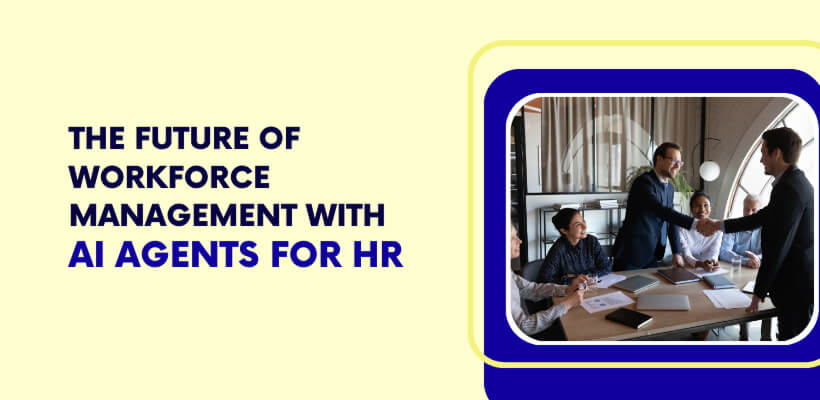
Managing people has always been at the heart of business success. However, traditional HR processes such as manual scheduling, repetitive paperwork, and delayed employee support low down productivity. In 2025, organizations are reevaluating their approach to workforce management. At the center of this shift are AI agents for HR.
Unlike basic automation that only follows fixed rules, AI agents in HR act with context and autonomy. They don’t just process data, they make decisions, predict needs, and support employees in real time. This new approach is changing how companies recruit, engage, and manage their people.
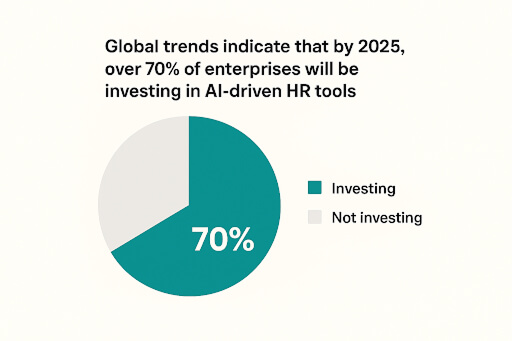
Global trends indicate that by 2025, over 70% of enterprises will be investing in AI-driven HR tools. Companies see AI agents for HR as more than cost savers; they’re becoming employee experience boosters. Let’s explore how AI agents for HR are shaping the future of workforce management.
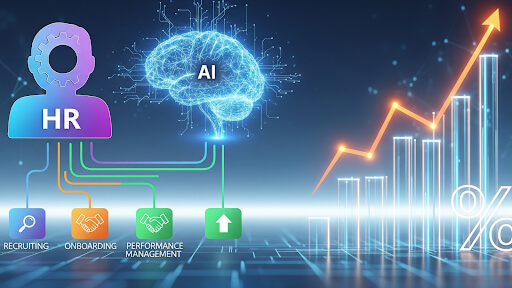
Modern workforces are complex. You’re dealing with remote teams, hybrid setups, high turnover, and rising employee expectations. Manual HR systems simply don’t keep up.
Agentic AI in HR steps in here. Unlike static tools, AI agents for HR monitor, learn, and respond dynamically. For example:
This isn’t futuristic, it’s already happening in leading organizations.
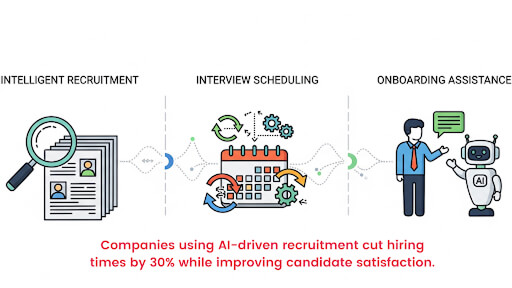
Hiring is one of HR’s most resource-heavy tasks. AI agents for HR streamline the entire pipeline.
According to SHRM (2025), companies using AI-driven recruitment cut hiring times by 30% while improving candidate satisfaction.
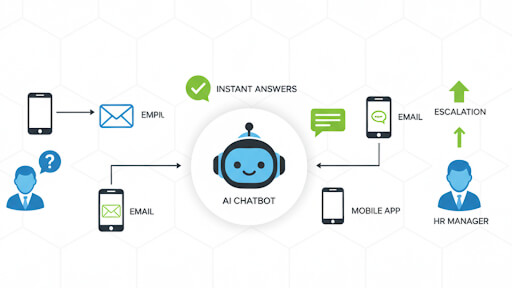
Traditional HR helpdesks are slow. AI agents for HR provide always-on support.
This creates a workplace where employees feel heard, without having to wait days for a response from HR.
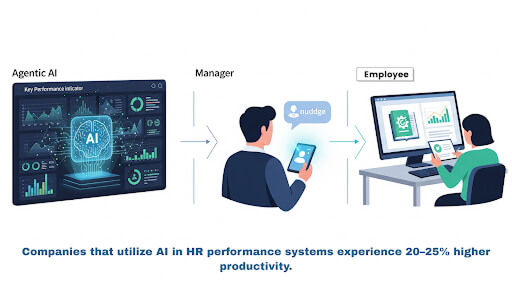
Managing performance often feels reactive. AI agents for HR turn it into proactive.
For example, if an employee struggles with leadership skills, the AI agent suggests targeted training programs that align career growth with organizational goals.
McKinsey reports (2025) that companies using AI in HR performance systems see 20–25% higher productivity.
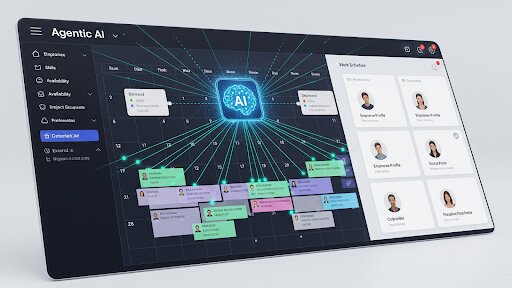
In industries such as healthcare, retail, or logistics, scheduling is crucial. Mistakes mean understaffed shifts and employee burnout.
AI agents for HR automate workforce allocation by analyzing:
The result? Balanced schedules, reduced absenteeism, and higher employee satisfaction.
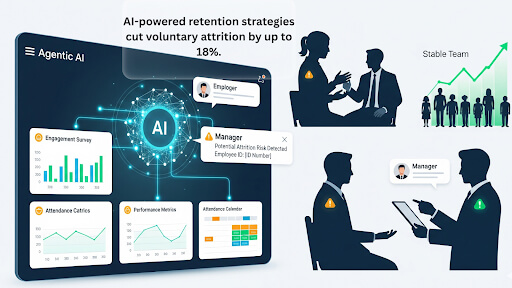
High turnover hurts companies, traditional HR notices attrition only after resignations. AI agents for HR predict it earlier.
By analyzing engagement surveys, attendance, performance, and sentiment, AI agents for HR forecast who might leave. Managers can step in with interventionssuch as mentorship, workload adjustments, or compensation reviewsbefore it’s too late.
A 2024 Gartner study found that AI-powered retention strategies cut voluntary attrition by up to 18%.
Bias in hiring and promotions is a long-standing HR challenge. AI agents for HR help reduce it.
By running unbiased data models, agentic AI in HR helps companies build fairer workplaces.
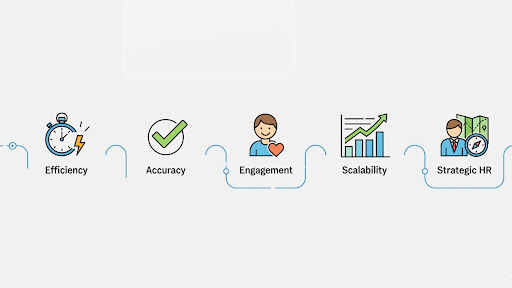
Let’s be clear AI agents for HR don’t replace HR teams. They augment them. Here’s how they improve workforce management:
Adopting AI agents in HR isn’t without challenges. Companies need to manage them carefully.
Companies that strike a balance between automation and empathy will succeed.
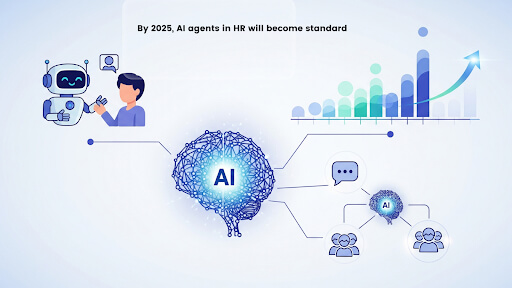
By 2025, AI agents in HR will become a standard feature. HR leaders won’t ask if they should adopt AIthey’ll ask how fast they can scale it.
We’ll see:
Companies that adopt AI agents for HR early will gain a competitive edge, offering faster, fairer, and more engaging workplaces.
The future of workforce management is not about replacing people, it’s about empowering them with AI agents for HR. These agents handle repetitive tasks, deliver proactive insights, and make HR more human by freeing staff to focus on high-value work.
If your organization wants to stay ahead in 2025, it’s time to bring the best AI agents into your HR strategy. The payoff is clear: happier employees, stronger retention, and a more innovative workforce.
1. How does agentic AI improve employee experience?
It gives instant answers, proactive insights, and personalized recommendations, making HR support faster and more relevant.
2. Are AI agents replacing HR professionals?
No. They automate routine tasks, allowing HR teams to focus on strategy, engagement, and human-centered initiatives.
3. Can AI agents reduce bias in HR decisions?
Yes. By anonymizing data and analyzing equity trends, AI agents help organizations reduce unconscious bias.
4. What’s the ROI of using AI in HR?
Companies that utilize AI-driven HR tools experience faster hiring, 20–25% productivity gains, and lower employee attrition rates.
5. How do AI agents handle employee privacy?
With proper governance, encryption, and compliance frameworks, AI agents secure sensitive employee data.
At [x]cube LABS, we craft intelligent AI agents that seamlessly integrate with your systems, enhancing efficiency and innovation:
Integrate our Agentic AI solutions to automate tasks, derive actionable insights, and deliver superior customer experiences effortlessly within your existing workflows.
For more information and to schedule a FREE demo, check out all our ready-to-deploy agents here.